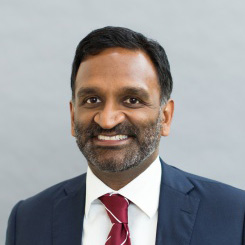Following my blog post and Acton News and Commentary piece “Obama vs. the Catholic Bishops,” I’d like to draw your attention to two Wall Street Journal editorial page articles in today’s edition that also criticize the bishops for their political and economic naivete.
WSJ columnist Daniel Henninger writes:
Politically bloodless liberals would respond that, net-net, government forcings do much social good despite breaking a few eggs, such as the Catholic Church’s First Amendment sensibilities. That is one view. But the depth of anger among Catholics over this suggests they recognize more is at stake here than political results. They are right. The question raised by the Catholic Church’s battle with ObamaCare is whether anyone can remain free of a U.S. government determined to do what it wants to do, at whatever cost.
[….]
With the transformers, it never stops. In September, the Obama Labor Department proposed rules to govern what work children can do on farms. After an outcry from rural communities over the realities of farm traditions, the department is now reconsidering a “parental exemption.” Good luck to the farmers.The Catholic Church has stumbled into the central battle of the 2012 presidential campaign: What are the limits to Barack Obama’s transformative presidency? The Catholic left has just learned one answer: When Mr. Obama says, “Everyone plays by the same set of rules,” it means they conform to his rules. What else could it mean?
Anyone who signs up for more of this deal by assuming that it will never force them to fall into line is getting what they deserve.
And here’s University of Chicago professor John Cochrane:
Our nation is divided on social issues. The natural compromise is simple: Birth control, abortion and other contentious practices are permitted. But those who object don’t have to pay for them. The federal takeover of medicine prevents us from reaching these natural compromises and needlessly divides our society.
The critics fell for a trap. By focusing on an exemption for church-related institutions, critics effectively admit that it is right for the rest of us to be subjected to this sort of mandate. They accept the horribly misnamed Patient Protection and Affordable Care Act, and they resign themselves to chipping away at its edges. No, we should throw it out, and fix the terrible distortions in the health-insurance and health-care markets.
Sure, churches should be exempt. We should all be exempt.
Both articles claim that the Catholic bishops were exclusively and overly concerned with getting exemptions for Catholic institutions and did not adequately focus on the larger political and economic problems brought on by Obamacare and the entitlement state in general, i.e. a growing dependence on the state and a convoluted tax code that attempts to direct our individual choices towards “socially optimal” ends, regardless of the inevitable, unintended consequences.
Henninger also points out that the bishops initially opposed Obamacare because of the threat of federal funding of abortion, which ought to make one wonder: Are the bishops capable of applying the principles of Catholic social teaching beyond the obvious “non-negotiable” issues of Catholic teaching (abortion, euthanasia, embryonic stem-cell research, etc.) and speaking coherently, intelligently and persuasively on prudential matters that are still of great political importance? Should they? Or should this be the responsibility of the Catholic laity, who may be better formed in politics and economics but lack the authority of episcopal office?
In my opinion, these are open and difficult questions that require us to think more seriously about the role of Catholic leadership in a liberal democratic society.

